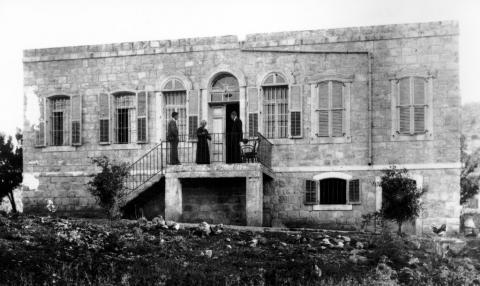A ‘Mrs C’ was an early believer who went to ‘Akká. She belonged to a wealthy and fashionable group of people in New York. Her life had been conventional and rather unsatisfying. She had been a sincere Christian, but somehow had not gained much comfort from her religion. She had become somewhat melancholy. While travelling abroad, she had learned about ‘Abdu’l-Bahá. She eagerly grasped His message and headed to the prison-city. Having arrived, she was fascinated by everything, most especially by the Master. She noticed that ‘Abdu’l-Bahá always greeted her with ‘Be happy!’ The other members of the party were not addressed in the same way by Him. This troubled her. Finally she asked someone to ask the Master why He addressed her in this way. With ‘His peculiarly illuminating smile’, He replied, ‘I tell you to be happy because we can not know the spiritual life unless we are happy!’ ‘Then Mrs C’s dismay was complete, and her diffidence vanished with the fullness of her despair.
‘”But tell me, what is the spiritual life?” she cried, “I have heard ever since I was born about the spiritual life, and no one could ever explain to me what it is!” ‘Abdu’l-Bahá looked at His questioner again with that wonderful smile of His, and said gently: “Characterize thyself with the characteristics of God, and thou shalt know the spiritual life!”’ few words, but they were sufficient. The characteristics of God? They must be such attributes as love and beauty, justice and generosity. ‘All day long her mind was flooded with the divine puzzle, and all day long she was happy. She did not give a thought to her duties, and yet when she arrived at the moment of her evening’s reckoning, she could not remember that she had left them undone.
‘At last she began to understand. If she was absorbed in Heavenly ideals, they would translate themselves into deeds necessarily, and her days and nights would be full of light. From that moment she never quite forgot the divine admonition that had been granted her: “Characterize thyself with the characteristics of God!” ‘And she learned to know the spiritual life.’
